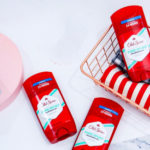The age-old debate of whether to shower in the morning or at night is a divisive topic for many households. Some advocate for morning showers, citing its energizing effects and ability to refresh oneself for the day ahead. In contrast, others prefer evening showers to wash away the day’s grime and sweat.
According to Dr. Primrose Freestone, a senior lecturer in clinical microbiology at the University of Leicester, understanding skin bacteria and body odor formation is key to determining the best shower time for hygiene and health.
While sweat itself is odorless, the Staphylococcus bacteria on our skin feed on it and produce sulfur compounds, resulting in an unpleasant smell. Throughout the day, our skin accumulates sweat, along with dirt, pollen, and other pollutants. This is why many opt for evening showers to “rinse off” these impurities and prevent them from transferring to bed linens.

However, Dr. Freestone offers a different perspective. She explains, “Even if you shower before bed, you’ll still sweat during sleep, providing food for the bacteria on your skin to multiply. Come morning, you might transfer these bacteria onto your sheets and wake up with body odor.”
Evening showers also depend heavily on the cleanliness of bed linens. If sheets are not washed frequently, the odor-causing bacteria can transfer back to your body as you sleep and even promote dust mite growth, triggering allergies.
On the other hand, morning showers remove dead skin cells, sweat, and bacteria that have accumulated overnight, ensuring you start the day fresher and with reduced body odor. This is why Dr. Freestone recommends morning showers for optimal personal hygiene.
Regardless of your preference, Dr. Freestone emphasizes, “Showering is an essential part of personal hygiene, promoting both health and a sense of well-being.”



































